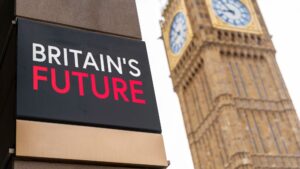Kwasi Kwarteng is due to outline the details of the ‘mini-budget’, which is designed to help households and businesses amid the current inflation crisis, next Friday.
Prime Minister Liz Truss promised a ‘fiscal event’ during the Tory Leadership Campaign as part of her plans to improve the economy, and Mr Kwarteng will reveal the details to the public on September 23.
MP’s will gather in the House of Commons on September 22 to allow for Mr Kwarteng to set out the plans for the mini budget despite them being due to break for conference season.
Parliamentarians are also being asked to sit for a day longer.
As well as setting out plans for the mini budget, a separate announcement on an energy package is also due to be delivered next week.
The energy package is a multi-billion-pound plan to tackle high energy bills with a focus on capping current costs.
According to the government, the energy plan will see bills reach no higher than £2,500 over the next two years, saving households around £1,000 from October 1.
Ms Truss said: ‘I’m acting immediately so people and businesses are supported over the next two years, with a new Energy Price Guarantee, and tackling the root cause of the issues by boosting domestic energy supply.
‘Extraordinary challenges call for extraordinary measures, ensuring that the United Kingdom is never in this situation again.’
It is expected that Mr Kwarteng will explain how this enormous package will be paid for.
However, some charities are already calling on the government to offer more support to vulnerable households who are already struggling with the price of bills.
Joanna Elson CBE, Chief Executive of the Money Saving Advice Trust said: ‘Millions of households in the UK are already struggling to meet rising costs.
‘With energy prices soaring, inflation rising and tax increases imminent, millions of households are on a collision course with the cost-of-living crisis.
‘The emergency support announced by the government last month to reduce the impact of rising bills will provide some limited help to households, but it does not get close to matching the scale of the problem.’
Photo by stux


















Leave a Reply